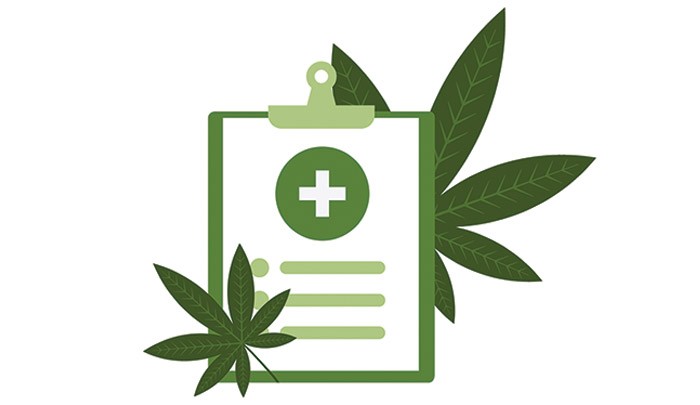How to Get a Medical Marijuana Card Near Me: A Comprehensive Overview
How to Get a Medical Marijuana Card Near Me: A Comprehensive Overview
Blog Article
Shedding Light on What Medical Cannabis Can Treat: a Thorough Evaluation of Its Healing Residences
In current years, there has been an expanding rate of interest in the healing capacity of clinical cannabis. While unscientific evidence is plentiful, an extensive examination of the clinical data relating to the effectiveness of clinical marijuana in treating these problems is required.
Persistent Pain Administration
Persistent discomfort management stays an essential aspect of medical care, requiring a detailed strategy for reliable treatment. In recent times, medical cannabis has emerged as a prospective restorative choice for individuals dealing with chronic discomfort conditions. The endocannabinoid system, which plays a vital duty in pain modulation, has been targeted by cannabis-based treatments to enhance and ease signs and symptoms lifestyle for people.

Furthermore, medical marijuana supplies an appealing option for clients that experience excruciating negative effects from standard pain medications. Its capacity to deal with discomfort with a various device makes it a valuable addition to the collection of treatments readily available for persistent pain management.
Epilepsy Therapy Prospective
Medical marijuana has revealed appealing potential in the therapy of epilepsy, using a novel healing method for handling seizures in people. Epilepsy is a neurological condition characterized by recurrent seizures, influencing individuals of all ages. Typical therapies for epilepsy consist of antiepileptic medications, yet these medicines might not work for all patients and can have considerable side effects.
Study on making use of clinical marijuana for epilepsy has disclosed encouraging outcomes. Cannabidiol (CBD), a non-psychoactive substance discovered in marijuana, has been especially highlighted for its anticonvulsant residential or commercial properties. Researches have revealed that CBD can lower the frequency and intensity of seizures in patients with treatment-resistant types of epilepsy, such as Dravet disorder and Lennox-Gastaut syndrome.
Moreover, the FDA has actually approved a CBD-based medicine, Epidiolex, for the therapy of seizures related to these serious kinds of epilepsy. This milestone highlights the expanding recognition of medical marijuana as a valuable restorative alternative for managing epilepsy and gives hope for patients that have not reacted well to standard therapies.
Nausea Relief Conveniences
The relief of queasiness with using marijuana has actually been increasingly recognized for its restorative benefits in different clinical conditions. Queasiness and throwing up are typical signs and symptoms experienced by people undertaking radiation treatment, those with gastrointestinal disorders, and individuals with persistent discomfort problems. Clinical marijuana, with its energetic compounds such as THC and CBD, has shown guarantee in offering remedy for nausea.

In addition, clinical cannabis uses a natural choice for individuals who do not respond well to conventional anti-nausea medications or that experience extreme negative effects from these medications. Individuals going through chemotherapy, particularly, have reported significant renovations in their top quality of life when making use of cannabis to manage nausea or vomiting. As research study in this area remains to expand, clinical cannabis is increasingly being considered as a valuable alternative for queasiness relief in different medical setups.
Anxiousness Reduction Impacts
Researches have actually demonstrated the potential of marijuana in decreasing anxiety signs and symptoms with its interaction with the endocannabinoid system. The endocannabinoid system plays a critical function in regulating feelings, including anxiousness, by preserving homeostasis in the body. Cannabinoids in marijuana, such as THC and CBD, engage with the endocannabinoid receptors in the brain, especially the CB1 and CB2 receptors, to modulate anxiety-related feedbacks.

Clients with problems like generalized anxiousness condition (GAD), social anxiousness disorder, and trauma (PTSD) might gain from the anxiolytic properties of marijuana (Medical Marijuana Doctor Near me). Nonetheless, further research study is required to determine ideal does, distribution methods, and long-lasting impacts on anxiousness management.
Prospective for Inflammation Control
With its recognized anti-inflammatory properties, cannabis has shown pledge in possibly regulating swelling within the body. Inflammation is the body's natural reaction to injury or infection, but when it ends up being more chronic, it can add to different illness such as joint inflammation, inflammatory bowel illness, and even heart problem. Research study recommends that the cannabinoids my response found in cannabis, such as THC and CBD, can help manage the immune feedback and reduce swelling.
Research studies have shown that cannabis can interact with the endocannabinoid system, which plays an important function in regulating inflammation. By targeting the cannabinoid receptors, marijuana substances can regulate the immune reaction, resulting in a decrease in inflammation degrees. This makes marijuana a potential prospect for handling inflammatory conditions where traditional therapies have actually failed.
Furthermore, cannabis-derived items like CBD oil have gained appeal for their anti-inflammatory buildings, with many people using them as a natural solution for problems connected with inflammation. While even more research study is needed to totally comprehend the mechanisms behind marijuana's anti-inflammatory impacts, current searchings for show encouraging results for the potential use medical marijuana in managing swelling.
Final Thought
Finally, clinical cannabis has actually shown encouraging healing residential or commercial properties in taking care of chronic discomfort, dealing with epilepsy, easing nausea, lowering anxiousness, and regulating inflammation. Its possible benefits in different clinical conditions highlight the significance of further research study and exploration into its medical use. The proof suggests that clinical marijuana could be a useful alternative treatment alternative for clients looking for relief from a variety of signs and symptoms and conditions.
In current years, medical cannabis has actually emerged as a prospective healing alternative for people suffering from chronic pain problems.Medical cannabis has revealed promising capacity in the therapy of epilepsy, supplying a novel healing method for taking care of seizures in people. As research in this area proceeds to expand, clinical cannabis is website link increasingly being thought about as a beneficial option for nausea relief in different medical settings.
In final thought, clinical marijuana has actually revealed appealing healing residential or commercial properties in handling persistent discomfort, dealing with epilepsy, soothing nausea, minimizing anxiousness, and managing swelling. The proof recommends that clinical marijuana might be a useful alternative treatment option for patients seeking alleviation from a range of problems and signs and symptoms.
Report this page